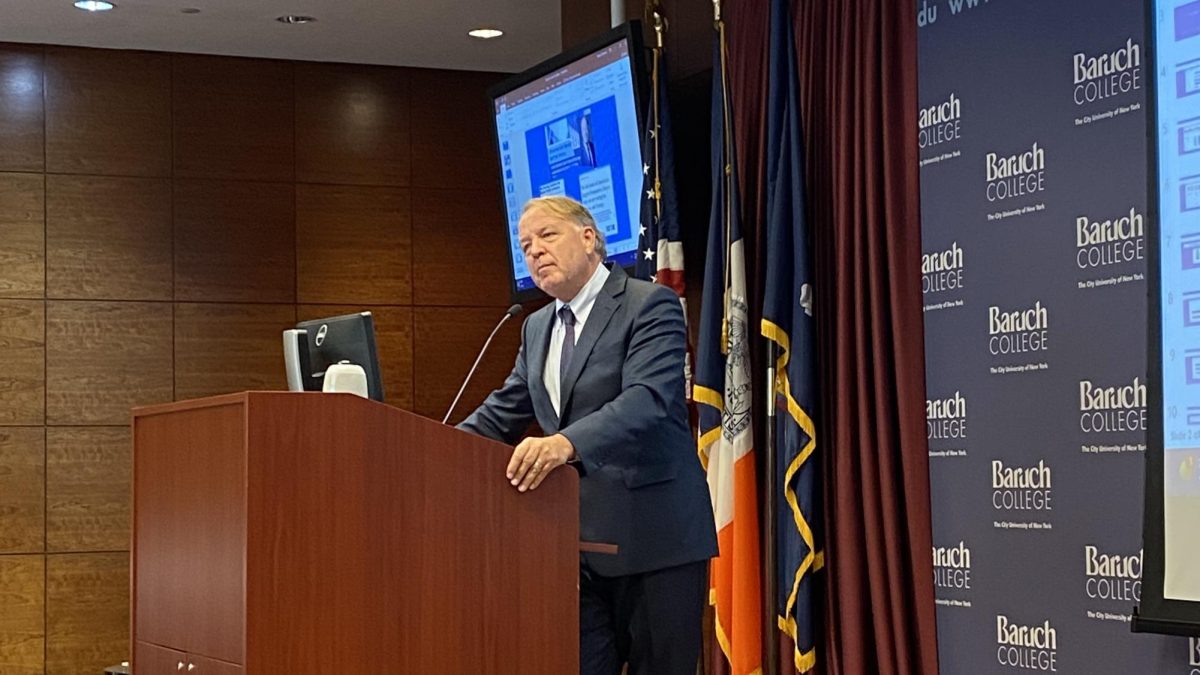The Robert Zicklin Center for Corporate Integrity invited Lawrence Cunningham, Director of the Weinberg Center for Corporate Governance at the University of Delaware, to present his framework for how CEOs and boards can navigate public commentary on controversial issues.
Cunningham has had an extensive career in law and business publications and published an international bestseller, “The Essays of Warren Buffett.” Having served on several public company boards, Cunningham drew from his experiences in advising corporate leaders who navigate polarized public discourse and rising social demands.
Corporate leaders today face mounting pressures to engage in public debates on divisive issues. Cunningham illustrated the tension CEOs face when confronted with calls to speak out on topics like climate change, immigration and politics.
“Consumers, employees, activists, shareholders, and politicians are all calling on corporations to take a stand,” Cunningham said, yet when they do, “corporations are often criticized for corrupting the political process,” which he said fuels social division.
Cunningham said that CEOs and boards should avoid a firm or ideological stance and instead adopt a nuanced approach. He said that corporate leaders should not be bound by policies that demand comments or silence, but should evaluate each issue based on its relevance to their business.
“There is no one-size-fits-all approach to this challenge,” he said. “Boards should aim to align CEO public positions with corporate objectives.”
Cunningham presented a balanced framework for corporate decision-making in this area. In his view, boards should empower CEOs to exercise autonomy on everyday matters, such as wages, prices, and earnings, without board intervention. At the same time, company boards should reserve high-stakes or highly polarized issues for their guidance.
This approach aims to promote a collaborative dynamic that respects the board’s oversight role without undermining the CEO’s authority.
Illustrating the potential consequences of taking a public stance, Cunningham discussed The Walt Disney Co.’s recent controversy over Florida’s educational policies. Initially, Disney’s CEO remained silent, but after mounting pressure from employees and activists, he changed his view. This led to backlash from other groups and brought legal challenges and a settlement with the state that cost Disney valuable property rights.
Cunningham said the case “is a powerful example of the consequences corporations may face in this complex landscape.”
Cunningham also spoke about the importance of authenticity in corporate communication. He said authenticity resonates with people, even those who disagree, noting that genuine and consistent statements are less risky than strategic or insincere gestures.
He said that while Americans believe CEOs should have a role in influencing lawmakers on topics such as voting rights and tax policy, the public is divided over whether CEOs should take positions on more contentious social issues.
“The greatest risks are with commenting on highly polarized issues where the public is close to evenly split,” Cunningham said. “Each board and CEO has to make their own judgments about how to apply this framework based on the unique circumstances of their business.”














